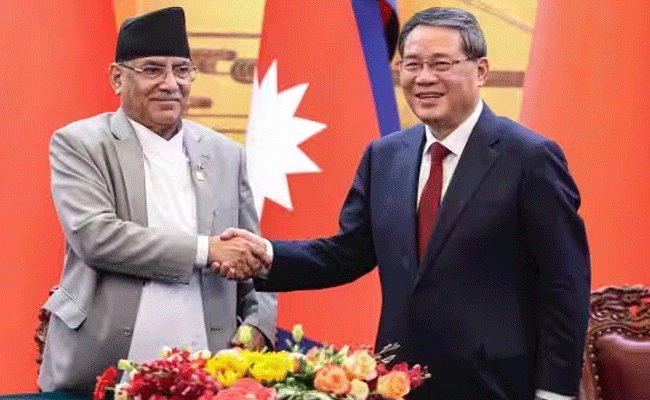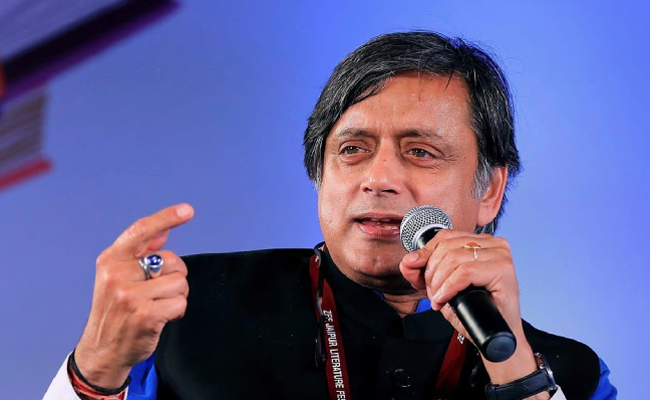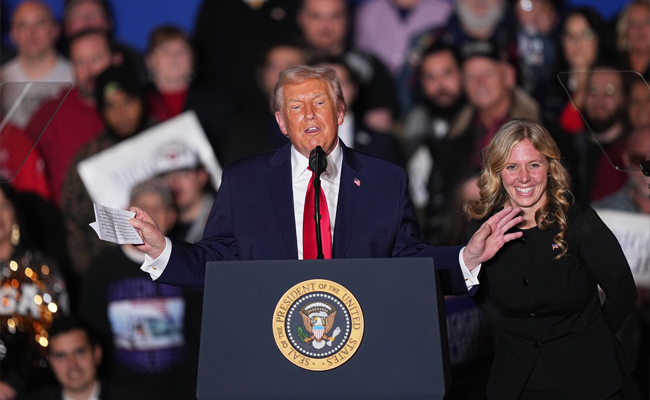Beijing/Kathmandu (PTI): China and Nepal on Monday signed 12 agreements, including seven MoUs, to enhance bilateral cooperation in sectors including trade, road connectivity, and information technology after Premier Li Qiang and Prime Minister Pushpa Kamal Dahal "Prachanda" held wide-ranging talks in Beijing.
During the meeting, the two leaders comprehensively reviewed the bilateral relations and expressed satisfaction over the close and cordial ties subsisting between the two countries, according to a press release issued by the Nepal embassy in Beijing.
The two sides exchanged views on the ways to further strengthen and consolidate the mutual understanding and cooperation and give a new impetus in the front of economy, trade and people-to-people contacts, it said, two days after Chinese President Xi Jinping held talks with Prachanda in Hangzhou on the sidelines of the Asian Games being held in the eastern Chinese city.
Prachanda, who politically distanced from the pro-China Communist Party of Nepal (Unified Marxist-Leninist) headed by KP Oli after becoming Prime Minister in December last year, made his maiden visit to China after visiting India and the US.
Following the official bilateral talks, 12 agreements were signed between the two countries, the Nepalese embassy said.
The agreements include an MoU for Cooperation between The National Planning Commission of Nepal and China's National Development and Reform Commission; an MoU on enhancing digital economy co-operation; an MoU related to cooperation on green and low-carbon development; and an MoU on cooperation in the field of agriculture, livestock and fisheries, the release said.
The two sides also signed a Memorandum of Understanding (MoU) on the establishment of a Joint Technical Working Group for the review and modification of the Nepal-China trade and payment agreement.
They also signed a protocol of phytosanitary requirements for the export of plant-derived medicinal materials for Chinese medicine from Nepal to China.
China and Nepal also signed MoUs on the Hilsa-Simkot Road Project and the Nepal-China Power Grid Interconnection Project (Chilime-Kerung).
The other agreements include cooperation in the fields of science, technology and innovation; and in the field of Human Resources Development, the release said.
Prachanda also met with National People's Congress Chairman Zhao Leji during which they focused on further broadening the historical ties between Nepal and China and promoting exchange of high-level visits, it said.
On Saturday, Prime Minister Prachanda met Chinese President Xi.
"Had a fruitful meeting with Xi Jinping, President of PR China. We exchanged views on a range of issues of bilateral relations and cooperation in our mutual interests. We agreed to collaborate closely and advance Nepal-China relations to strengthen ever-lasting friendship," Prachanda said in a post on platform X after the meeting.
Prachanda has directly flown to China from New York, where he addressed the 78th General Assembly of the United Nations.
Let the Truth be known. If you read VB and like VB, please be a VB Supporter and Help us deliver the Truth to one and all.
New Delhi (PTI): Congress leader Shashi Tharoor on Saturday, while lauding the win of the UDF in Kerala local bodies elections, also congratulated the BJP for its historic performance in his Thiruvananthapuram constituency, calling it the "beauty of democracy".
In a post on X, he said the people's verdict must be respected, whether for the UDF overall or for the BJP in his constituency.
"What a day of amazing results in the Kerala local self-government elections! The mandate is clear, and the democratic spirit of the state shines through.
"A huge congratulations to @UDFKerala for a truly impressive win across various local bodies! This is a massive endorsement and a powerful signal ahead of the state legislative elections. Hard work, a strong message and anti-incumbency have all clearly paid off to achieve a much better result than in 2020," Tharoor said.
He said he also acknowledges the historic performance of the BJP in Thiruvananthapuram, and "offer humble congratulations on their significant victory in the city corporation - a strong showing that marks a notable shift in the capital's political landscape."
Tharoor said he campaigned for a change from 45 years of the LDF "misrule", but the voters have ultimately rewarded another party that also sought a clear change in governance.
"That is the beauty of democracy. The people's verdict must be respected, whether for the UDF overall or for the BJP in my constituency.
"We will continue to work for the betterment of Kerala, advocating for the people's needs and upholding the principles of good governance. Onwards and upwards!" Tharoor, who is the MP from Thiruvananthapuram, said.
The lotus bloomed in the state capital as the BJP-led NDA achieved a resounding win in the polls for the Thiruvananthapuram Corporation, snatching it from the CPI(M)-led LDF and marking an end to 45 years of continuous Left rule in the local body.
The win in the Thiruvananthapuram Corporation will act as a boost for the BJP in the 2026 Assembly polls, especially in the state capital.
Of the 101 wards in the Thiruvananthapuram Corporation, the BJP won 50, LDF 29, UDF 19 and two wards were won by independent candidates.
The BJP is one seat short of a decisive majority in the corporation.
Besides this, the NDA retained the Palakkad municipality after a close battle with the Congress-led UDF and wrested the Thrippunithura Municipality from the grand old party.
In Thrissur, from where Suresh Gopi won in the Lok Sabha polls last year, the BJP won 18 out of the 46 wards in Kodungallur Municipality, eight in Thrissur Corporation, two each in Guruvayoor and Vadakkancherry municipalities, seven in Kunnamkulam Municipality, six in Irinjalakuda Municipality and one in Chalakudy Municipality.





